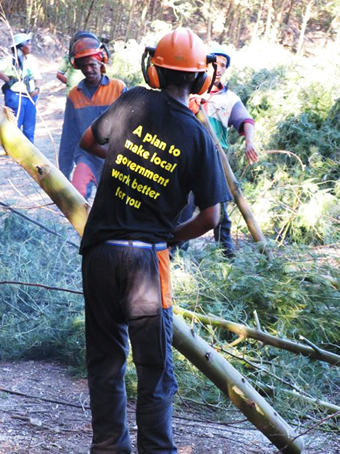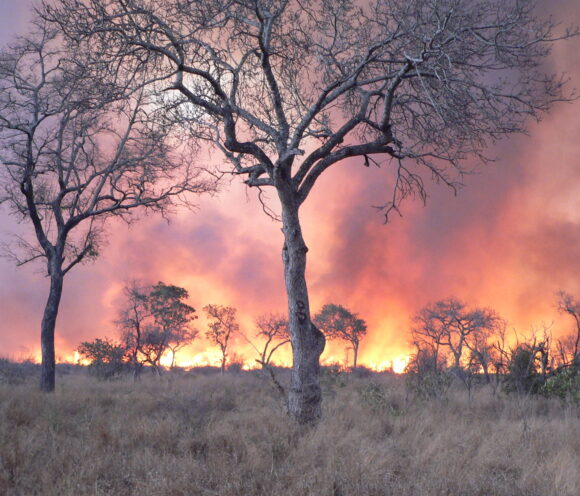Public works programs are government job-creation initiatives that use labour to create or restore public infrastructure, for example, roads, hospitals, and in some cases, ecological restoration of degraded land. They have been used for centuries throughout the world, and today are supported by large donors such as the World Bank. A commonly-cited example is South Africa’s invasive alien plant control program “Working for Water” (WfW), which aims to create employment via the restoration of landscapes invaded with alien plants. The main source of WfW’s funding comes from the Expanded Public Works Program (EPWP), which is the primary provider of direct aid for South Africa’s enormous working-age unemployed population. Established in 2004, the EPWP’s ambitious millennium development goal was to halve unemployment by 2015.

Public works programs such as WfW are often viewed as win–win solutions for reaching goals for ecological restoration and poverty alleviation. However, little systematic research has been conducted to analyse the challenges of implementing such projects. C·I·B post-doctoral associate Dr. Matthew McConnachie and co-workers interviewed 23 WfW managers about the challenges they face in meeting the program’s environmental and poverty alleviation objectives. The researchers found that most managers mentioned challenges related to the capacity and competence of themselves and their teams, followed by challenges relating to planning and coordination, specifically the difficulties associated with being flexible and adaptive when constrained by operating procedures. Some managers also highlighted the challenges of maximizing short-term employment opportunities as part of EPWP’s objectives whilst also trying to make a long-term difference to social and environmental outcomes.
Above all the study highlights the urgent need for evidence-based research on the social and environmental outcomes of public works programs to provide policy-makers with options for improving the design and implementation of these important poverty-alleviation tools.
For more information, contact Dr Matthew McConnachie at mmcconnachie@sun.ac.za

